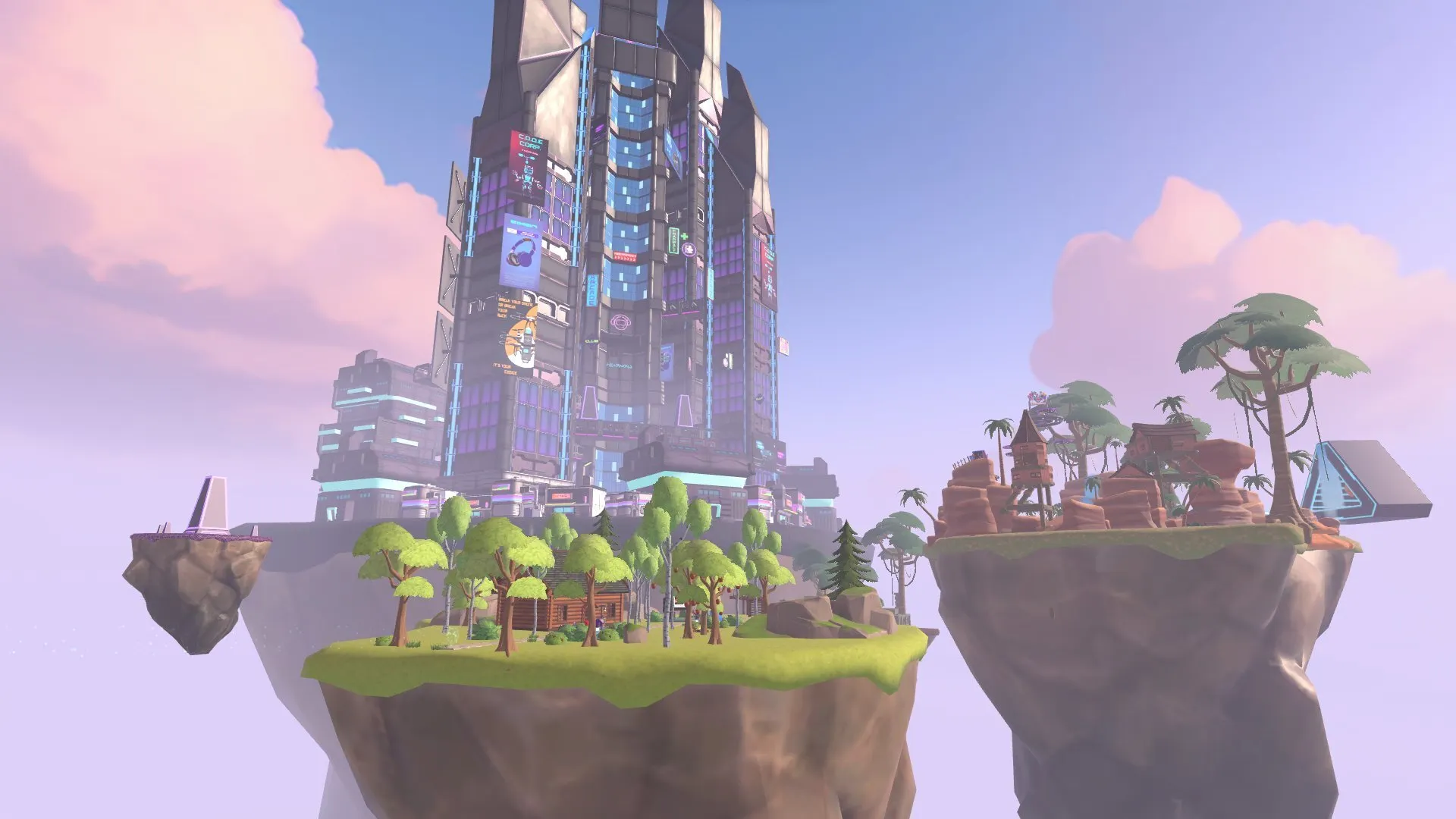Some game developers are turning to artificial intelligence to make the creative process faster and easier—and cheaper, too. At Google Cloud Next in San Francisco, startup Hiber announced the integration of Google’s generative AI technology in its Hiber3D development platform, which aims to simplify the process of creating in-game content.
Hiber said the goal of adding AI is to help creators build more expansive online worlds, which are often referred to as metaverse platforms. Hiber3D is the tech that powers the company's own HiberWorld virtual platform, which it claims already contains over 5 million user-created worlds using its no-code-needed platform.
By typing in prompts via its new generative AI tool, Hiber CEO Michael Yngfors says creators can employ natural language to tell the Hiber3D generator what kind of worlds they want to create, and can even generate worlds based on their mood or to match the vibe of a film.
“With the help of generative AI, we're taking away that last hurdle for creativity,” Yngfors told Decrypt. “People are inherently super creative, but you can get stuck and you don't know what to do. But now [AI] is what we believe is going to unlock creativity for the masses, and unlock that creativity that exists in each and everyone.”
Launched in 2017, the Gothenburg, Sweden-based Hiber offers users a suite of tools for creative, immersive online worlds. In July, fashion brand Tommy Hilfiger launched its Tommy Parallel metaverse experience on HiberWorld, letting fashionable creators show off their style in a 3D environment.
Generative AI refers to tools that use prompts to generate images, text, music, and videos. Other companies using generative AI to build virtual worlds include Roblox, Meta, NVIDIA, and Activision Blizzard.
HiberWorld isn’t the only metaverse platform looking to AI to streamline the creative process, either. In March, Oncyber announced the launch of Magic Composer, an AI-powered tool that uses OpenAI’s ChatGPT to let users create environments using text-based prompts. Social media giant Meta has been talking about similar functionality around its own metaverse ambitions.
In collaboration with Google Cloud partner and AI consultant firm Datatonic, Hiber uses Google’s Cloud Run and PaLM large language models to provide an immersive create-and-play experience designed for mainstream audiences.
"By collaborating with Hiber and Datatonic, we are able to unlock even more capabilities of real-time generative AI so that players can experience worlds the way they want and imagine them to be," said Google Cloud Director of Game Industry Solutions Jack Buser, in a statement.
While the hype around generative AI has made the technology sound like the answer to all questions, Hiber Chief Strategy and Marketing Officer Sean Kauppinen said developers should instead view it as a "stepping stone" to bigger things.
“With every technological evolution or revolution, a lot of people will step up to the idea that [AI] is a magic bullet, and it will completely change everything,” Kauppinen said. “But really, every evolution or revolution in technology is a stepping stone in the right direction towards the next big evolution. It's all about people just needing to take those first steps.”

